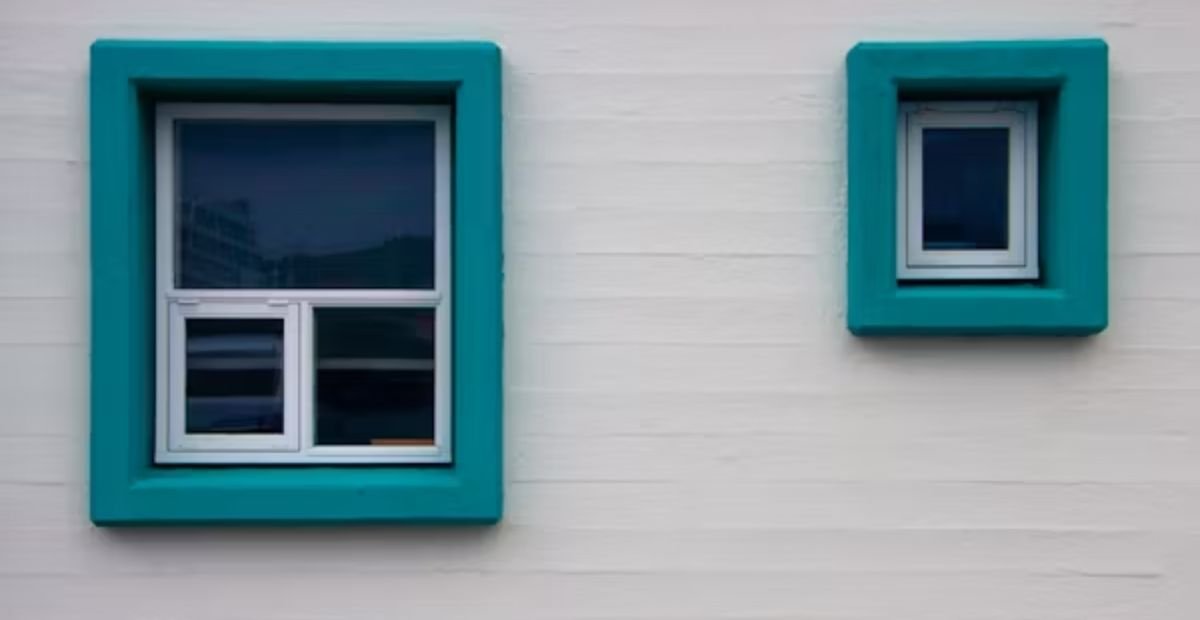What’s the Difference Between Double and Single Hung Windows for Home Ventilation?

When choosing the right windows for your home, ventilation plays a vital role in overall comfort and air quality. You may wonder, what’s the difference between double and single hung windows for home ventilation? Understanding this distinction can help you make a smarter investment. Both window types look similar, but they function differently in terms of airflow and usability. Single hung windows offer limited ventilation, while double hung windows provide more flexibility. This difference affects energy efficiency, maintenance, and fresh air circulation. Let’s explore how each window style performs in real-world home environments.
Understanding Hung Windows and Their Role in Ventilation
Windows do more than bring in light—they play a vital role in your home’s ventilation. When choosing between window types, it’s important to ask: what’s the difference between double and single hung windows? The answer affects not only design but also how well your home breathes. Double hung windows allow both sashes to move, while single hung windows have a fixed upper sash. This difference directly impacts airflow and moisture control, especially in humid areas like basements or bathrooms.
A proper ventilation strategy, combined with updates like basement floor coating, can significantly improve air quality in your home. Coated basement floors resist mold and mildew, which pair well with double hung windows that circulate more air. If your basement feels damp or musty, updating windows and floors together can create a cleaner, drier environment without the need for expensive dehumidifiers.
Key Differences: Single Hung vs. Double Hung Design
When comparing window options for your home, it’s essential to understand the key differences between single hung and double hung designs. While both types share a similar appearance, their functionality sets them apart. Single hung windows have a fixed top sash and only the bottom sash moves, making them simpler and often more budget-friendly. In contrast, double hung windows allow both the top and bottom sashes to open, providing better airflow and ease of cleaning. These design differences impact not just ventilation but also energy efficiency, maintenance, and overall convenience for homeowners.
Key Points:
- Sash Movement:
- Single Hung: Only the bottom sash moves.
- Double Hung: Both top and bottom sashes move.
- Ventilation:
- Single Hung: Limited ventilation from bottom only.
- Double Hung: Enhanced airflow from both top and bottom.
- Cleaning Ease:
- Single Hung: Harder to clean upper sash.
- Double Hung: Easier to clean both sashes from inside.
- Cost:
- Single Hung: More affordable option.
- Double Hung: Slightly higher in cost due to added features.
- Energy Efficiency:
- Single Hung: Fewer moving parts, better insulation.
- Double Hung: Slightly more air leakage risk but good for airflow.
Energy Efficiency and Climate Considerations
Another factor in this comparison is energy efficiency. Double hung windows tend to cost more than single hung models, but they offer better control over airflow. This control can reduce your reliance on heating and cooling systems, especially during mild weather. However, if not sealed properly, double hung windows might leak more air due to additional moving parts.
Single hung windows, being simpler in design, often provide a tighter seal and are less prone to drafts. For homeowners using basement floor coating to improve insulation below ground level, choosing the right window type above ground completes the energy-saving strategy. By sealing floors and selecting energy-efficient windows, you create a balanced, temperature-controlled environment across all levels of your home.
Maintenance and Cleaning Considerations
When it comes to home windows, easy maintenance and cleaning are key for saving time and effort. Single hung windows, with their fixed upper sash, can be challenging to clean—especially on higher floors. In contrast, double hung windows allow both sashes to tilt inward, making it much easier to clean the glass from inside the home. Regular care, like cleaning the glass, wiping the frames, and checking the seals, ensures your windows stay in top condition for years. Choosing a design that’s simple to maintain can make a big difference in the long run.
- Single hung windows ka upper sash fix hota hai, is liye clean karna mushkil hota hai.
- Double hung windows dono sashes tilt kar letay hain, jo cleaning ko asaan banata hai.
- Regular cleaning se window ki life aur performance dono barhti hai.
- Tracks ko saf aur lubricate karna smooth operation ke liye zaroori hai.
- Time par seals ka check karna leakage se bachata hai.
- Glass ko mild cleaner se saaf karna chahiye taake scratch na ho.
- Frames ko kapray se wipe karna dust aur damage se bachata hai.
- Double hung windows maintenance-friendly hote hain, especially upper floors ke liye.
- Monthly cleaning routine window ki functionality ko maintain karta hai.
Safety and Indoor Air Quality Benefits
Windows play a vital role in ensuring both home safety and indoor air quality. Double hung windows offer an advantage by allowing better airflow without compromising safety, especially for families with young children or pets. They help circulate fresh air effectively, reducing humidity, odors, and harmful pollutants indoors. Choosing the right window type can significantly enhance the overall comfort and health of your living space.
| Benefit | Single Hung Windows | Double Hung Windows |
|---|---|---|
| Child & Pet Safety | Less secure (bottom stays open) | Safer (open top sash only) |
| Air Circulation | Limited airflow | Better ventilation |
| Indoor Air Quality | Moderate improvement | Improved air freshness |
| Humidity & Mold Control | Lower effectiveness | Better at reducing moisture |
| Safe Ventilation Option | No (bottom only) | Yes (top-only opening possible) |
Cost Comparison and Long-Term Investment
In most cases, single hung windows are more affordable upfront. This makes them appealing for budget-conscious renovations or large projects involving multiple windows. Double hung windows, while more expensive, provide added functionality that can pay off over time in terms of ventilation, comfort, and even resale value.
Consider your priorities: if ease of cleaning and flexible airflow matter most, double hung windows are worth the investment. If you’re finishing a basement and want to balance cost with performance, you might combine both window types strategically. Just as basement floor coating adds value to lower-level spaces, the right window choice contributes to overall home efficiency
Which Window Type Is Better for the Basement?
Basements require window types that offer natural light, ventilation, and safety in case of emergencies. Choosing the right window type depends on the space, local building codes, and your specific needs. Among the best options are egress, hopper, and sliding windows for basements.
Common Basement Window Types:
- Egress Windows – Large, code-compliant windows designed for emergency exits.
- Hopper Windows – Hinged at the bottom and open inward; ideal for ventilation.
- Sliding Windows – Open horizontally and fit well in wider wall spaces.
- Glass Block Windows – Provide privacy and security, but limited airflow.
- Awning Windows – Hinged at the top and open outward, good for light and air.
Design and Aesthetic Flexibility
- Multiple Styles Available
Choose from modern, rustic, traditional, or industrial styles to match your home’s vibe. - Color Customization
Offers a wide range of colors and finishes to suit personal preferences and existing decor. - Material Options
Available in wood, metal, glass, and composite materials for a tailored aesthetic. - Modular and Convertible Designs
Flexibility to rearrange, expand, or repurpose based on space and utility needs. - Blend with Any Setting
Perfectly complements both indoor and outdoor themes without clashing visually.
Conclusion
So, what’s the difference between double and single hung windows when it comes to ventilation? Simply put, double hung windows offer greater airflow control, better indoor air quality, and easier cleaning. Single hung windows are more affordable and energy efficient but offer limited ventilation options. Both can be excellent choices depending on your goals.
When updating your home, don’t overlook the synergy between window upgrades and basement floor coating. This combination enhances comfort, reduces maintenance, and increases long-term value. Choose wisely based on your space, climate, and budget—and breathe easier knowing your home is better equipped for healthy living.
FAQs
What’s better for basement ventilation: double or single hung windows?
Double hung windows are better for basement ventilation because they allow airflow from both the top and bottom, helping reduce moisture buildup and musty odors.
Do double hung windows cost more than single hung windows?
Yes, double hung windows are typically more expensive due to their dual-sash design, but they offer added benefits like easier cleaning and improved airflow.
Are double hung windows safer for families with kids?
Yes, they are safer because you can open the top sash for ventilation while keeping the bottom sash closed, which reduces fall risks for children and pets.
Can basement floor coating help with moisture control?
Absolutely. Basement floor coating seals concrete floors, making them moisture-resistant and preventing mold growth, especially when combined with proper ventilation.





